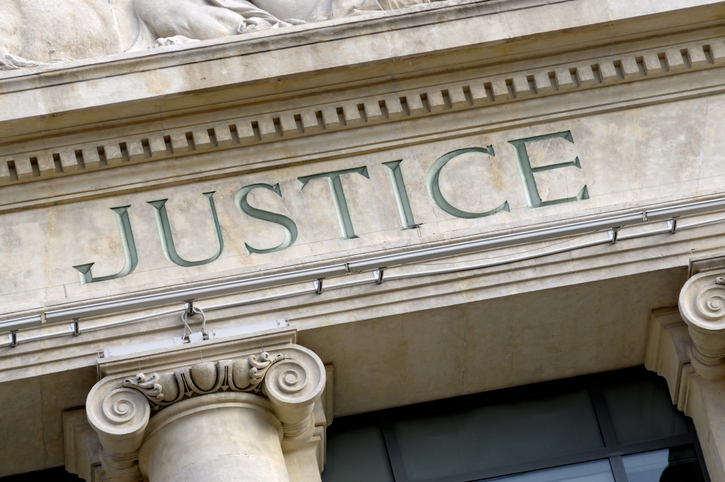He has shown you, O man, what is good;
And what does the Lord require of you
But to do justly,
To love mercy,
And to walk humbly with your God?
Micah 6:8
Justice is a hot topic these days. A myriad of thoughts, discussions, and debates are held on every media platform about justice and how it should be administered-and in some cases, who should be the recipient. This debate often stifles any forward progress towards achieving justice. Yet for Christians, Scripture is clear that Yeshua (Jesus) champions justice, redeems people, and calls us to join Him in His kingdom work. So the question we need to ask ourselves is: How should we respond? How should we display justice in a world that constantly changes definitions and in some cases values one life over another?
We had to wrestle with those questions when we planted Vision Church. We decided early in our development that we wanted to be a church that visibly and tangibly displayed the gospel we’ve received and the justice we proclaim. This led us to develop four primary areas of outreach:
- Poor
- Prisoner
- Single Parent
- Unborn
Some may ask, How can you provide justice for the unborn? Let’s first look at a scriptural definition of Justice. A theologian defines justice as the webbing together of God, humans, and all creation in equity, fulfilments, and delight. This unity and equality produce what the Bible calls shalom, or peace. God cares about human flourishing and He cares about every single life, including the youngest human lives in the womb.
But here we find ourselves at odds with others in the culture. Some think we should leave justice up to the government, believing our legislators will set reasonable laws that will ensure peace and justice for all. But history has shown us that the government has failed in many of its efforts to do so. Theoretically, the role of the government is to reward good behavior and punish wrongdoing. But is the government perfect and does it administer perfect justice? Of course not! Even the Bible is replete with examples of when ruling governments enacted laws that proved harmful instead of helpful for people. And in order to obey God and not man, God’s people had to take action:
- Shiphrah and Puah who feared God more than they feared the king and resisted his order to kill male born babies and it was their bravery that allowed Moses’ birth to occur (Exo. 1:15-18).
- Hananiah, Mishael, and Azariah refused to bow to Nebuchadnezzar’s statue and God supported them (Dan. 3:12).
- Esther appeared before the king illegally and God was with her because Haman was going to unjustly attack His people (Esther 4:15-17).
The Bible encourages us to speak up for the voiceless and do justice, even when it disrupts the peace of the status quo. Proverbs 31:8-9 says, Speak up for those who cannot speak for themselves; ensure justice for those being crushed. Yes, speak up for the poor and helpless, and see that they get justice. God’s instructions make it clear that justice isn’t exclusively something we say, but something we do; we can’t “do justice” without doing something. We can and must show the love of God to those who are contemplating abortion by providing other life-affirming options along with sustained, nurturing discipleship and support. We can communicate through our commitment to them that, while the circumstances surrounding the pregnancy may not be ideal, God has a plan for each life involved.
How does your church get involved with the Pregnancy Centers in your area?
We have encouraged our members to volunteer at our local Pregnancy Center, and I’ve personally led devotions for workers on the frontlines that advocate for the lives of the unborn. We also donate to organizations that value the sanctity of lifeand allow like-minded organizations to educate our members regarding the truth about abortions and better alternatives to it.
How do you approach the men and women in your church about being involved in the fight of life?
As a pastor, I think it’s important to preach about it and then allow ways for the preached Word to be applied. This is why we partner with other organizations that provide a free sonogram, which statistically increases the chances of a pregnant woman to keep her unborn child. Preaching alone won’t suffice, but it keeps the need at the forefront of our people’s minds and hearts. We understand that it’s not a political issue, but a beautiful life and discipleship matter that God, the author of life cares about and we should too.
What has been your driving force in being pro-abundant life year around?
My driving force is having a holistic approach to life and justice. This means that we teach our people that there’s a difference between being pro-life and pro-birth. Advocacy for life doesn’t stop once a person is born. This means we care about how the moms and dads and their families are treated because while the “voiceless” mentioned in Proverbs 31 includes the unborn, it’s not limited to the unborn. A true pro-life ethic cares about all people from the womb to the tomb and seeks justice and equality for people because everyone is made in the image of God.
So, it’s our privilege and passion to provide justice for the unborn and support for all the lives involved in an unplanned pregnancy by speaking, acting, collaborating, and serving. Because every life matters to God, each life should matter to us.
Jerome Gay Jr.
Pastor of Vision Church and Author of Renewal: Grace and Redemption in the Story of Ruth

